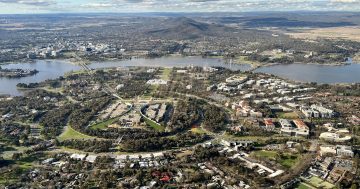
Hospitality has been particularly hard hit as Canberrans cut back their spending. Photos: Kazuri Photography.
The outlook in 2025 remains gloomy for Canberra businesses despite the prospect of interest rate cuts on the horizon.
The latest quarterly survey of business sentiment from the Canberra Business Chamber shows local firms are doing it tough as customers keep their hands in their pockets or spend less in the current high cost of living environment.
The tough trading conditions are exacerbating businesses’ own rising costs and tangles with red tape.
The survey found a little more than half of respondents did not meet their business targets in the last quarter of 2024 (to 31 December).
The cost of doing business was the biggest issue for businesses, with 65 per cent saying this was either restricting or severely restricting their business from operating at its full potential.
About half said that this, and reduced customer demand, was creating a difficult environment for business.
Respondents singled out the cost of workers compensation insurance in the ACT, reported to be 47 per cent dearer than across the border.
A bit less than a third had a negative or very negative view of business confidence, a small improvement on the previous quarter, while 33 per cent are expecting their businesses to grow over the next 12 months, down slightly from the previous quarter.
More than a quarter (26%) expect their firms to shrink over the next quarter, which is up slightly.
The 31 per cent of respondents who operate across the country say it’s harder to do business here in the ACT than in other jurisdictions.
Key issues include the relatively high cost of doing business here, including complying with government red tape, the lack of scale in many businesses, a perceived lack of responsiveness from the ACT Government, and the complexity of procurement at both the Territory and Federal levels.
Canberra Business Chamber CEO Greg Harford said the possible interest rate cuts offered businesses a glimmer of hope, but structural issues remain.
Mr Harford said work for tradies and consultancies had dried up, hospitality spending and retail were flat, and people who were going out were limiting how much they ate and drank.

CEO of the Canberra Business Chamber Greg Harford says the cost of workers compensation insurance is a big burden for ACT firms. Photo: Canberra Business Chamber.
However, there were areas that the government could help with, such as the ACT’s distinct workers compensation arrangements, which included no cap for damages, no time limits and door-to-door coverage, all of which drove up the cost of insurance.
“We absolutely want workers to be protected and looked after if they’re injured, but the issue is there are structural problems with the settings here that make it more, much more expensive to buy a workers compensation policy here than across the border in NSW,” he said.
“You can come back 30 years after you were injured at work and lodge a claim for something that might have happened and might have contributed to something in your life, but it might not have as well.
“There’s a whole lot of other factors that just don’t get factored into that, and insurance companies are heavily incentivised to settle rather than avoid the cost of litigation.”
Mr Harford said workplace cover in the ACT starts from the moment you leave home to go to work or to when get home, so if you’re injured on your way to work, or you slip over on your way home, that could become a compensation claim.
These factors made insurance more expensive for insurers and, ultimately, for everyone in the ACT because those costs were passed on to customers and consumers.
The Chamber would be making a submission to the Assembly committee inquiry into the cost of insurance.
Mr Harford also said the government needed to be more customer-focused and not make life so complicated for businesses.
That could involve not requesting information it should already have on record, not putting unnecessary barriers in front of businesses and slow response times.
“We really need to think about how to achieve good outcomes without the complexity and the cost that’s involved.
Mr Harford said the Commonwealth’s new workplace relations laws were causing a lot of anxiety and deterring businesses from hiring despite a new study saying that the effects so far had been benign.
He welcomed a new National Small Business Strategy launched this week but said that while there were some worthy principles, what was really needed from governments were concrete actions to actually help business.
Mr Harford urged Canberrans to shop locally to help keep the local economy going and keep jobs in the local economy.




















